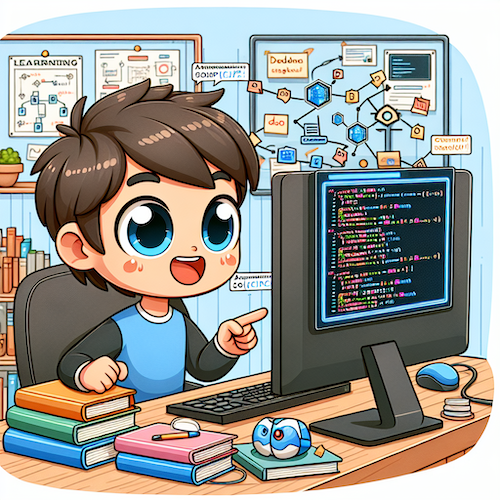AI Skills That Will Keep You Ahead of the Curve

In today's rapidly evolving technological landscape, staying ahead of the curve is essential. Artificial Intelligence (AI) is at the forefront of this evolution, driving innovations across various industries. To remain competitive, it's crucial to master specific AI skills that are in high demand. This blog will delve into the AI skills that will keep you ahead in the game.
1. Machine Learning
Machine Learning (ML) is a subset of AI that enables systems to learn from data and improve over time without explicit programming. Mastery in ML involves understanding algorithms such as:
- Supervised Learning: Algorithms like Linear Regression, Decision Trees, and Support Vector Machines.
- Unsupervised Learning: Techniques like K-Means Clustering and Principal Component Analysis (PCA).
- Reinforcement Learning: Understanding Markov Decision Processes and Q-Learning.
2. Deep Learning
Deep Learning (DL) is a specialized branch of ML that leverages neural networks with many layers (deep neural networks). Key areas to focus on include:
- Convolutional Neural Networks (CNNs): Essential for image recognition tasks.
- Recurrent Neural Networks (RNNs): Used in natural language processing (NLP) and time series prediction.
- Generative Adversarial Networks (GANs): Useful for generating realistic data samples.
3. Natural Language Processing
Natural Language Processing (NLP) is the ability of a computer to understand, interpret, and generate human language. Key skills in NLP include:
- Text Preprocessing: Techniques like tokenization, stemming, and lemmatization.
- Sentiment Analysis: Understanding and extracting emotions from text.
- Language Models: Working with models like BERT, GPT-4o, and their applications in chatbots and virtual assistants.
4. Data Analysis and Visualization
AI professionals must be adept at analyzing data and visualizing results to derive insights. Essential tools and skills include:
- Python Libraries: Mastering libraries like Pandas, NumPy, and Matplotlib.
- Data Cleaning: Techniques to handle missing data, outliers, and ensure data quality.
- Visualization Tools: Proficiency in tools like Tableau, Power BI, and seaborn for creating informative charts and graphs.
5. Robotics and Automation
Integrating AI with robotics and automation can lead to significant advancements in manufacturing, healthcare, and other sectors. Important areas include:
- Robot Operating System (ROS): Understanding the middleware for robotic applications.
- Computer Vision: Skills in object detection, tracking, and 3D vision.
- Automation Tools: Familiarity with AI-driven automation tools like UiPath and Blue Prism.
6. Ethical AI and Governance
As AI becomes more pervasive, understanding the ethical implications and governance is crucial. Key aspects include:
- Bias and Fairness: Techniques to identify and mitigate bias in AI models.
- Data Privacy: Ensuring compliance with regulations like GDPR and CCPA.
- AI Governance Frameworks: Implementing frameworks to oversee AI developments and deployments.
7. Cloud Computing and AI Integration
Cloud platforms provide the infrastructure necessary for deploying and scaling AI models. Key skills include:
- Cloud Platforms: Proficiency in AWS, Google Cloud Platform (GCP), and Microsoft Azure.
- AI Services: Utilizing cloud-based AI services like AWS SageMaker, Google AI, and Azure AI.
- Scalability: Techniques for scaling AI applications to handle large datasets and high traffic.
8. Edge AI
Edge AI refers to running AI algorithms locally on a hardware device rather than in a centralized data center. This is crucial for real-time applications. Key areas include:
- Embedded Systems: Understanding microcontrollers and FPGA.
- IoT Integration: Integrating AI with Internet of Things (IoT) devices.
- Low-Latency Inference: Techniques to achieve fast inference times on edge devices.
Conclusion
Mastering these AI skills will not only keep you ahead of the curve but also open up numerous opportunities in various fields. Whether it's through online courses, certifications, or hands-on projects, investing time in these AI skills is a step towards a successful and future-proof career.
